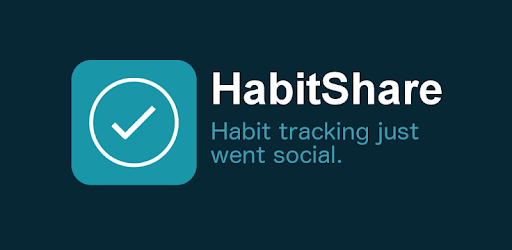Pursuing Purpose
Identify Your Purpose, and Move Towards It.
If you are in early recovery from an addiction, it’s crucial to identify your purpose and move towards it.
The journey can be challenging, and without a clear sense of purpose, it can be easy to feel lost and aimless. But when you have a sense of direction, it can give you the motivation and drive you need to stay on track and achieve your goals.
Identifying your purpose may involve exploring your values and interests more deeply. What do you want to achieve in your life, and what kind of person do you want to be? By setting clear goals and working towards them, you will create a sense of purpose and direction in your life.
This can help you stay focused and give you a reason to stay on the path, even when things get tough.

Fredrick nietzche
“He who has a why to live for can bear almost any how.”


Post-Detox Disillusionment
We’ve seen a lot of people struggle after successfully detoxifying from a chemical dependency, so we came up with the term “post-detox disillusionment.” Basically, it’s when the dark clouds roll in after the initial high of detox wears off.
When someone’s in active addiction, their entire life revolves around getting their next fix and avoiding withdrawal. Everything else falls by the wayside, and it can feel like there’s no hope for a better future. But once they’ve gone through detox, there’s this feeling of “I did it! I’m free!”
Unfortunately, that feeling doesn’t always last.
That’s where we come in. Our coaches are trained to help people navigate the tricky waters of post-detox life. We can help you identify and overcome the challenges that might be holding you back, so you can move forward with confidence and build the life you want.
Detoxification may cause physical pain, but a lot of people find the period immediately following to be the most challenging. Detox is only the beginning of a long road to rehabilitation. It’s not enough to simply make it through detox; staying abstinent from an addiction requires ongoing effort and commitment.
noticing the silver linining
Viktor Frankl says that “suffering is not necessary to find meaning, however meaning is possible even in spite of suffering.”
The value of suffering
As a person who has struggled with addiction, you understand suffering. You know the toll it can take on your emotional, physical, and spiritual well-being. But you also know that suffering is not something we have to endure forever. With the right guidance and support, it’s possible to transform your pain into something meaningful.
When you’ve successfully recovered, it can be hard to remember just how you managed to push through all the challenges. Looking back, it can seem like a surreal experience – almost like a never-ending nightmare that you’ve finally woken up from. But it’s during this phase that you can start to use that experience as a tool for growth, and begin to find purpose in your life once again.
The Existential Vacuum
What does the existential vacuum feel like?
Experiencing boredom and apathy is common during the first few months of abstinence. Active addiction rarely leaves room for boredom, as the substance itself can alleviate these feelings and consume a lot of time. When stopping substance use, it’s not uncommon to feel intense waves of boredom.
Time slows down
After completing detox, we often feel overwhelmed about living a substance-free life. The thought of a lifetime without our substance(s) of choice can slow down time and make each day seem like a week. It’s crucial to work through this existential vacuum and move towards purpose to experience comfort in recovery.
Viktor Frankl, the creator of the term “existential vacuum,” described it as a collective neurosis resulting in an inner void that stems from a lack of meaning in our lives. This feeling of meaninglessness could affect all of us across the spectrum, but it’s especially prevalent among those struggling with drug addiction. In the early 1980s, Annemarie von Forstmeyer and Stanley Krippner conducted a study which showed that 100% of individuals with chemical addictions believed their lives lacked true meaning.
Belief in one’s life having meaning and purpose is the number one predictor of long-term successful recovery. When we remain trapped in the “existential vacuum” for an extended period, temporary abstinence may occur, but it is unlikely that recovery will happen. Simply putting down drugs does not alleviate the suffering caused by active drug addiction. The disillusionment that persists after the pains of detox can linger for months or even years.
The 12 Daily Pillars are designed to help us stay balanced, but it is up to us to find purpose in our recovery.
Dostoevesky said, “there is only one thing I fear – not to be worthy of my suffering.”
We believe that how a person accepts their fate and carries their cross with all its inescapable suffering while courageously pursuing purpose and meaning defines recovery. This is the moment when abstinence turns into recovery, and we can consider ourselves worthy of our suffering as we achieve spiritual growth that cannot be taken away.

Finding Your Why
Recovering from a substance use disorder (SUD) can be a challenging journey that requires a lot of effort and determination.
It’s easy to feel discouraged and fall back into old habits without the right motivation. However, finding the motivation to keep striving for a better future can be the key to your success.
Motivation can boost your confidence, help you understand your values, recognize your willpower, and help you develop a new love for life that you may have never had before. It’s essential to find the internal strength to want to recover, as this decision ultimately rests on you. While friends, family, doctors, and peers can offer their support and encouragement, the decision to recover starts with building your internal motivation to want to recover for yourself.
Habit Share
Keep Those Goals SMART!

Specific
Measurable
Attainable
Relevant
Time-Based
RECOVER
